
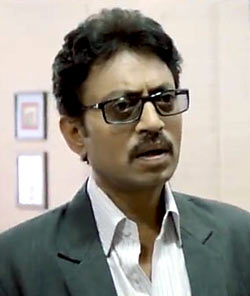
Film: Talvar
Everything in Meghna Gulzar's Talvar is sordid -- from facts to clues to backstories -- but in the middle of the film, seemingly spotless as the white shirt he wears, is investigative officer Ashwin Kumar.
Irrfan's big weapon in this film is inscrutability, and while interrogating subjects or going over analysis, he chooses to burrow into some arcade arcana on his phone instead of making eye contact.
It's unnerving and unexpected, and Khan plays the part like a man walking a tightrope while himself marvelling at how high it is.
His is a character bewildered by the absurdity of the situation, a character who reasonably finds himself stunned by the daftness of it all, and one who speaks in a wry voice because no other kind will be heard.
All this while his personal life unravels, his beautiful wife leaves him -- "without reason?" wonders the divorce court -- and he starts to realise that truth is often too much to hope for, even when it seems the most obvious.
The performance shines because of how gradually and realistically Khan changes gears -- aloof and distanced at first, then bemused, then stunned -- as he’s drawn into the increasingly murky case, which leads finally to a point where he indeed loses his shirt and flips out, in a way even costing his team the case.
The build-up to Kumar's rage is so realistic that the actor creates, scarily enough, the sort of explosion we can all relate to -- and yet, shamefully, often shy away from. He’s as real as can be.

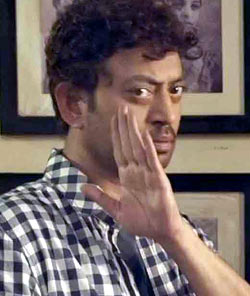
Film: Piku
There is a moment in Shoojit Sircar’s Piku where Irrfan -- an engineer who now reluctantly runs the family car-rental business -- has made so many allowances for the pretty, prickly Piku that he demotes himself to the driver’s seat for a trip with her family.
As Piku and her father climb into the car, the family servant sits in the front with Khan and he simply refuses to drive. It’s a telling moment, one showing ugly but inevitable class consciousness, but Khan plays it without even raising an eyebrow.
He is aghast -- and we know it -- but damned if he’s going to show it. His Rana Chaudhary is a terrific character, an agreeable enough fellow who is nonetheless highly opinionated and frequently contrarian, and Khan is flawless in the part, nuanced and understated. Yet, he carves out a persona so cool that a woman like Piku would believably flip for him.

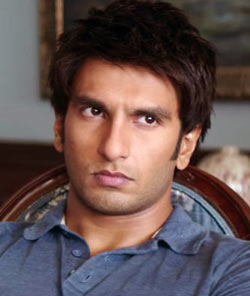
Film: Dil Dhadakne Do
While he’s great in Bajirao Mastani, I posit that this less showy Singh performance is the finer piece of craft, a subtle and inward-looking characterisation of a quiet, introverted boy who occasionally overcompensates.Zoya Akhtar’s loud film is populated by loud and cartoonishly boisterous folk, but halting the tide is Singh, silent and reflective and sullen in that way some poor little rich boys often appear.
He opens us every now and again and startles us with bursts of energy -- like with filmi declarations of love, or coming up with puns with his sister, or that electric when he pulls up a chair to really, finally tell his parents what he thinks of them, drumming his fingers restlessly when he’s done talking -- but the true joy of this performance is in the way he shies away from eye-contact. In the way he drags his feet. And in the way he giggles.

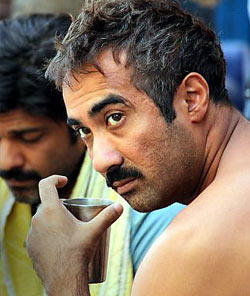
Film: Titli
It is goddamned hard to look away from Ranvir Shorey in Kanu Behl’s disturbing film. Shorey is Vikram, the leading man’s elder brother -- eternally, exasperatingly off-centre from the events taking place -- but he seizes the screen every time he shows up, creating a character grounded in frustration and fury.
He is the never-was, a frustrated carjacker who takes his pressure-cooked angst and hurls it around himself in violent tantrums, and Shorey slaps people’s heads off in Titli. Achingly enough, however, it is the relatively softer moments that define just how broken Vikram is, from the way he looks forlornly at the wife he used to beat up when told to sign divorce papers, to the way he is repulsed by the thought of using up money saved up for his sister-in-law’s education. A stunning performance.


Film: Bajirao Mastani
The role of a warrior in a swords-and-sandals epic takes more than merely the right chainmail, and Singh flexes every muscle of his screen presence to shoulder Sanjay Leela Bhansali’s gigantic film.
Ever-likeable on screen, here the actor steps up to the larger-than-life demands of the film with panache, conjuring up a screen-conquering swagger.
He pulls off the bravado -- even when it is ludicrous, like when he takes on a storm of arrows armed with swords and fury, like a cross between Neo and Rajinikanth -- which is smashing in itself, but also adds delicacy to the part with lithe movements and meticulously over-stressed enunciation.


Film: Detective Byomkesh Bakshy
The characterising aspect of Rajput’s portrayal of the great Bengali middle-class detective, besides the way he carries off a dhoti with élan, is the visible intelligence he brings to the part.
His eyes frequently gleam in Dibakar Banerjee’s film, be it with mischief or in anticipation. The actor plays the part with arrogance -- a man so intoxicated by his own brightness that he can’t help being full of himself -- and yet is visibly not quite ready to deal with the murky challenges thrown his way.
It’s a sharply poised performance, and one wishes the Byomkesh sequels come through if only to give us -- and Rajput -- more time with the dashing character.

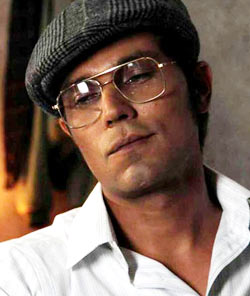
Film: Main Aur Charles
It’s always wonderful to watch an actor excel in a role without ever trying too hard, and Randeep Hooda -- despite a challenging role that requires, among other things, mastering a French accent and mimicking a known serial killer -- tackles his part in Prawaal Raman’s film with a mercifully loosened collar.
This is a film about vibe, and Hooda’s Charles Sobhraj rides the 1970s grooviness expertly, and, like the Sobhraj we have mythologised, charms everyone in sight. It’s a performance that could have easily turned tiresome, but Randeep tapdances through it with grace.


Film: Masaan
Vidyadhar Pathak is a character drowning in regret. His every step a lament, his every word bristled, his wariness the only way to cope with a world that insists on making his lot worse.
Mishra plays this chewed-up character with heartbreaking believability, his morose persona looking all the sadder for the rare moments when he, experimenting with chance and change, is briefly exuberant before he invariably finds himself at even more of a loss.


Film: Piku
In Shoojit Sircar’s heartwarming film, Bhaskor Banerjee is an opinionated old man obsessed with his bowels -- an over-the-top caricature if ever there was one.
Yet Bachchan imbues the role with sharp humour, tenderness and even an unlikely frailty, making the character real, relatable and -- because it is Amitabh Bachchan, doing what he has never done -- rather delightful.
It’s a hammy performance, certainly, but only in the way that aged Bengali relatives are, posturing pretentiously and omnisciently about all and sundry.
The character’s possessive, churlish behaviour toward his 'sexually liberated' daughter is always believably affectionate and filled with pride, and the actor works the silent moments, like when he’s adjusting his hearing aid or when he breaks into a drunken jig, like a charm.

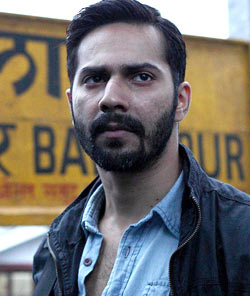
Film: Badlapur
Varun Dhawan has been displaying a full-blooded commitment to every genre he touches, and this is most impressively visible in Sriram Raghavan’s dark noir. He plays Raghu, a young man who wants revenge but doesn’t know how.
He’s willing to push himself, too willing at times, and yet all he has is time to wring his hands. He plays off the experienced Nawazuddin Siddiqui very well, more than holding his own, and delivers a nuanced performance of a man pushed to a frightening brink.
A few scenes where he imposes himself -- as if practising the act of vengeance on others before unleashing himself upon his intended victim -- are rightfully disturbing.